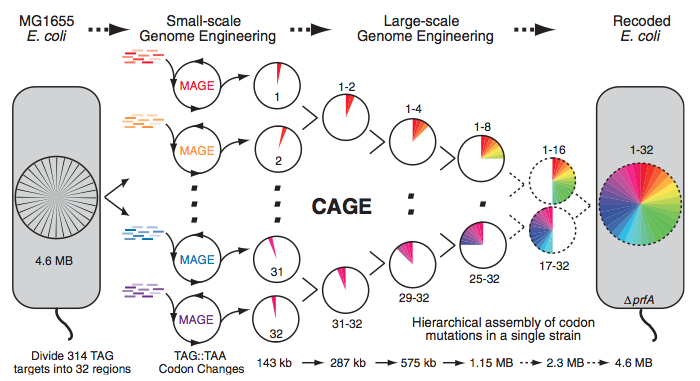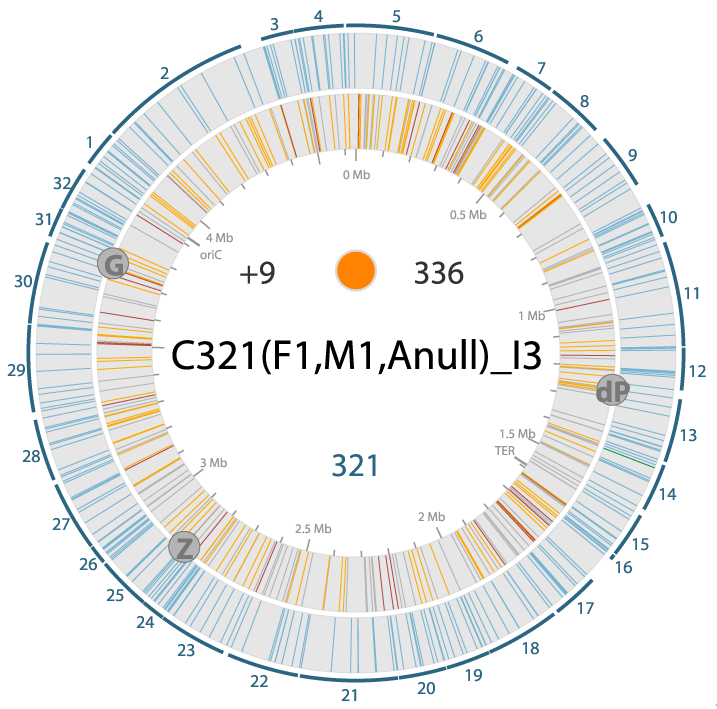Millstone is a distributed bioinformatics software platform designed to facilitate genome engineering for synthetic biology. Automate iterative design, analysis, and debugging for projects involving hundreds of microbial genomes.
What is synthetic biology?
Synthetic biology is the design and construction of biological devices and systems for useful purposes. These designer organisms can be harnessed to produce biofuels, drugs, nanomaterials, and other value-added chemicals, or act as living nano-scale platforms for diagnostics and drug delivery applications.
Why couldn't we do this before?

In the past, biological engineers have been limited to
copying and pasting only existing genes, or altering only small
stretches of DNA at a time. Genome sequencing was slow and costly, and
reading even one microbial genome sequence was cost-prohibitive.
Today, DNA synthesis and sequencing are both undergoing a rapid increase
in speed and scale, while simultaneously decreasing in cost. In
addition, new technologies like Oligonucleotide Library Synthesis (OLS),
Multiplex Automated Genome Engineering (MAGE), and Conjugative Automated
Genome Engineering (CAGE), are making it easier to generate radically
altered or even purely synthetic microbial genomes.
How does Millstone fit in?

Now that we can read and write DNA at an unprecendented scale, there
is a pressing need for analytical tools to make sense of this
information.
Millstone is the first software platform that can fully
automate the intensive computational process of analyzing engineered
genomes. Millstone accepts raw genome sequencing data for hundreds of
related microbial strains and returns the genomic changes present in
each strain, annotating those that might affect the organism's function.
Millstone can then help design additional changes or revert
existing undesired ones, iteratively engineering these genomes
for useful purposes.
